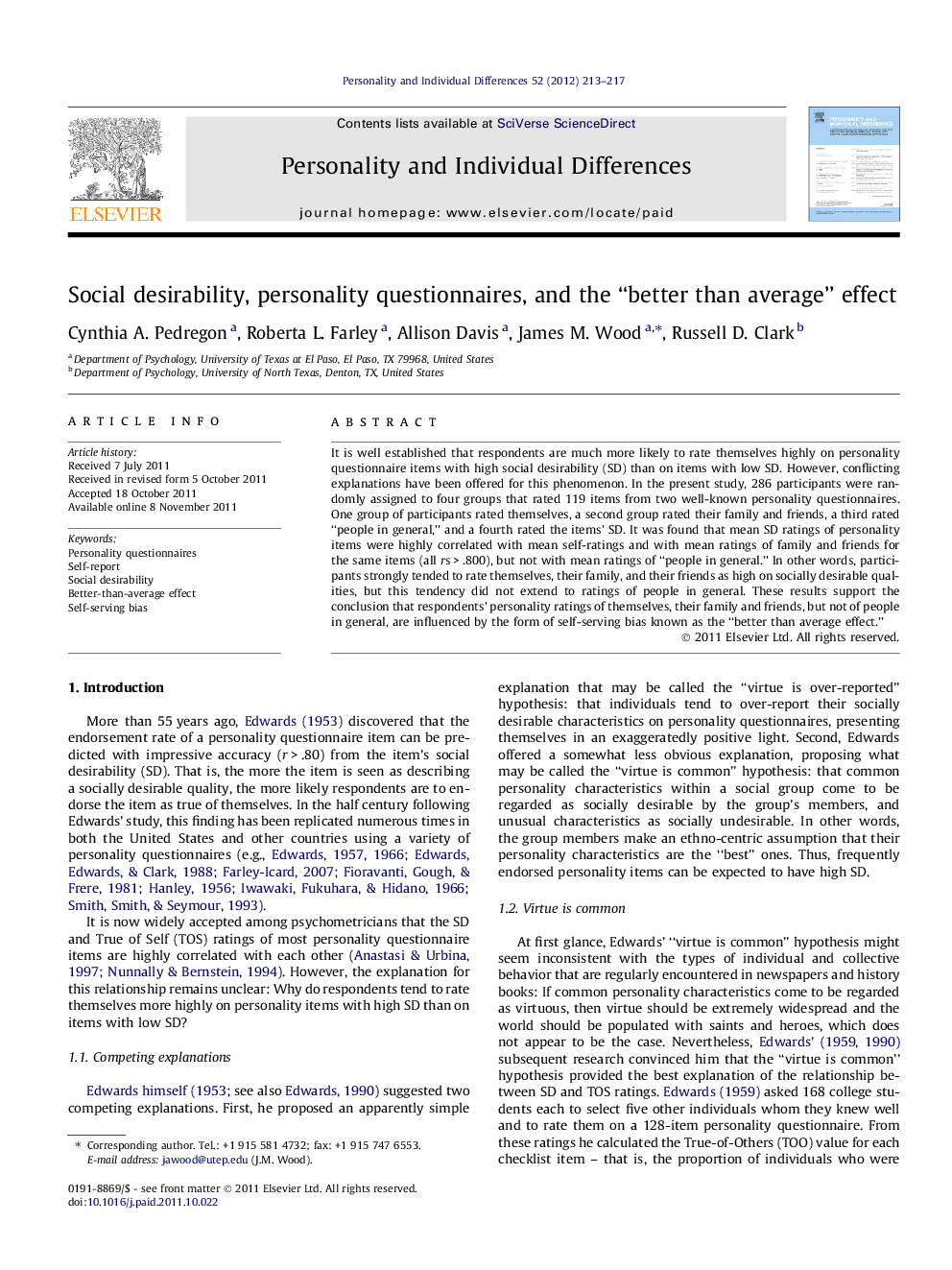| Article ID | Journal | Published Year | Pages | File Type |
|---|---|---|---|---|
| 891218 | Personality and Individual Differences | 2012 | 5 Pages |
It is well established that respondents are much more likely to rate themselves highly on personality questionnaire items with high social desirability (SD) than on items with low SD. However, conflicting explanations have been offered for this phenomenon. In the present study, 286 participants were randomly assigned to four groups that rated 119 items from two well-known personality questionnaires. One group of participants rated themselves, a second group rated their family and friends, a third rated “people in general,” and a fourth rated the items’ SD. It was found that mean SD ratings of personality items were highly correlated with mean self-ratings and with mean ratings of family and friends for the same items (all rs > .800), but not with mean ratings of “people in general.” In other words, participants strongly tended to rate themselves, their family, and their friends as high on socially desirable qualities, but this tendency did not extend to ratings of people in general. These results support the conclusion that respondents’ personality ratings of themselves, their family and friends, but not of people in general, are influenced by the form of self-serving bias known as the “better than average effect.”
► Students rated themselves and other individuals on personality items. ► They rated themselves, their family and friends as having highly desirable traits. ► They did not show the same pattern when rating “other people in general.” ► Conclusion: Personality self-ratings reflect the “better than average” effect.
